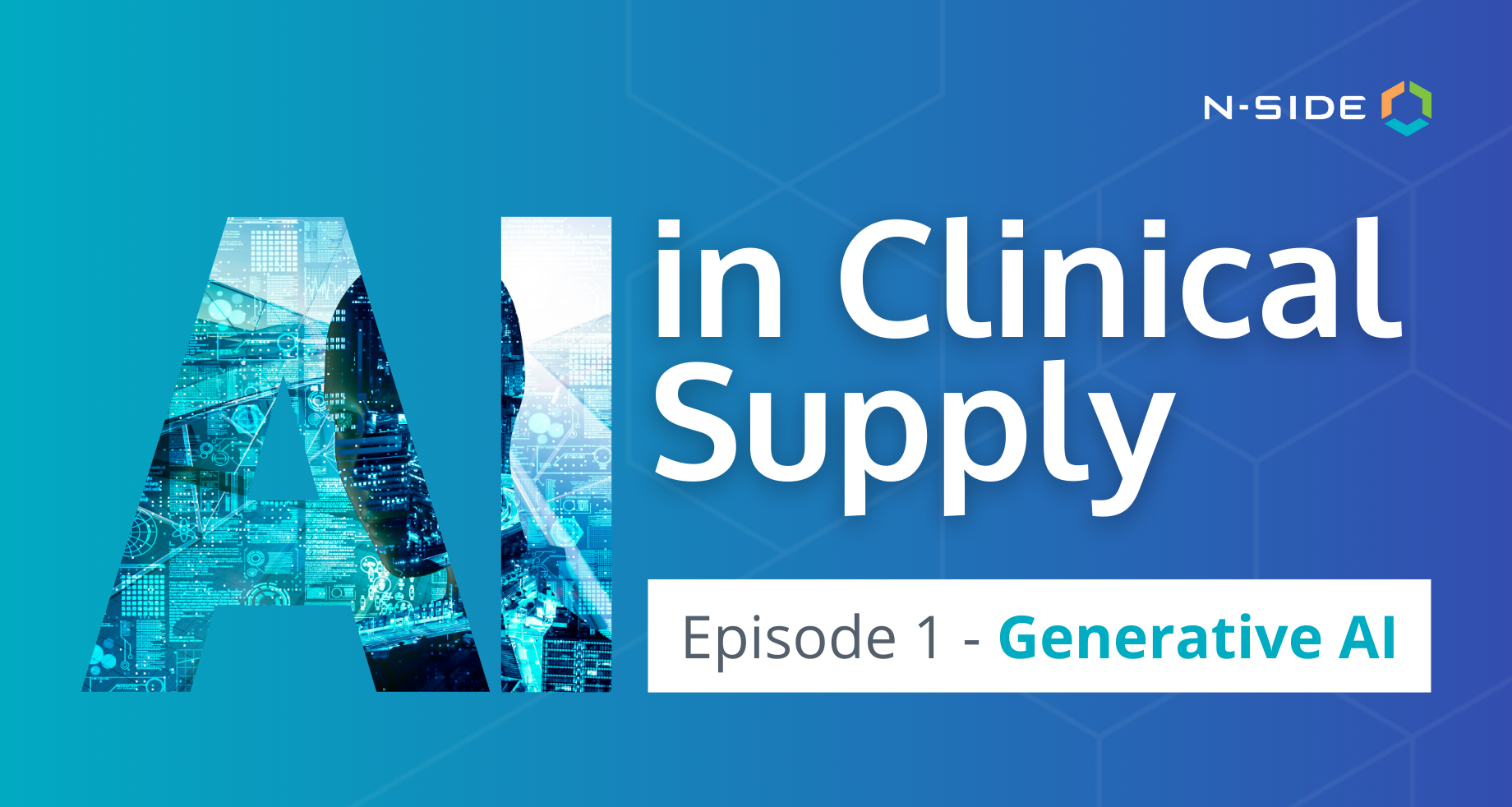AI in Clinical Supply Chain - Episode 1


 Amaury Jeandrain
Amaury Jeandrain
Which AI Method for Clinical Supply?
[Episode 1] - Generative AI
The boom of Generative AI has strongly popularised AI worldwide, making it a mainstream and must have technology in almost every industry.
The Pharmaceutical R&D, and the clinical supply chain that goes with it, are not left aside. Technology vendors are building AI into their solutions, while pharmaceutical companies are re-imagining their organisations, like Sanofi wanting to become the “first pharma company powered by AI”.
But the popularity of Generative AI has also cast a shadow on other AI methods to the point of forgetting that GenAI is only one small piece within a very large landscape of methods.

In Gartner’s recent article about this topic, they state that GenAI is not the magic answer to every problem. Actually, most problems would be better tackled by simpler techniques, or by a combination of multiple AI methods rather than (just) GenAI.
If we focus on the clinical supply chain industry, we can easily draw parallels with Gartner’s analysis.

Prediction/forecasting
Gartner rates the usefulness of GenAI as “low”. It is understandable, as this method is based on processing past and existing data. A generative AI model will not be able to propose accurate and implementable demand forecasts or risk assessments for clinical supply chain professionals. It can recognise trends, identify attention points, and therefore act as a recommendation system. GenAI can support clinical supply managers by sharing insights on aspects of the supply chain that might generate inefficiencies or risk, propose scenarios and ideas to be tested. But it will not fully replace a forecasting model.
Decision intelligence
The same is true regarding decision intelligence. The insights that GenAI might be able to provide are no more than general guidelines and ideas but it will never be able to accurately predict and quantify the impact of a decision, for which a simulation or optimization model is more apt.
Even though, for prediction/forecasting & decision intelligence, other AI methods than GenAI are recommended (simulations and optimization, which we will analyse in depth in our next episode), GenAI can act as a companion to clinical supply chain managers and feed them ideas to refine their decisions and forecasts.
Content generation & user interfaces
Of course, where GenAI has a high impact is when it supports content creation or transformation and data analysis. In the clinical supply chain, we are handling an impressive amount of data every day, and GenAI has already proved its efficiency in saving time when interacting with data.
GenAI can be used in analysing results from prediction and forecasting as well as real-time clinical trial data. Chatbots are the first and easiest way to leverage this AI method in the clinical supply chain, saving the user time unusually required for an in-depth analysis of data.
Another application, which relates to natural language processing (NLP; generative AI being a sub-set of NLP) might help clinical supply chain managers in automating the filling of forms (e.g. customs), questionnaires (RFPs) and data entry in software. By analysing language in any format (article, results, tables, etc.), GenAI can process this information and translate it into the right format.
Other AI methods for clinical supply chain management
In the next episodes of this series, we will analyse how other AI methods can support the clinical trial supply chain. Look forward to our analysis on the following topics in the coming weeks:
AI in Clinical Supply Chain Episode 2 : Simulations
AI in Clinical Supply Chain Episode 3 : Optimization
AI in Clinical Supply Chain Episode 4 : Machine learning
Want to receive the next article directly in your mailbox?
AI at N-SIDE
As an optimization company, N-SIDE has been successfully using AI for more than 20 years in over 12.000 clinical trials. Optimization, simulations and machine learning algorithms are native in our solutions.
Wish to learn more about how N-SIDE uses AI to reduce drug waste and risks in the clinical supply chain, while saving time and money? Book a meeting with one of our experts.



About the Author
Amaury is N-SIDE's Strategy Advisor for clinical supply chain solutions. Within his 9 years in the industry, Amaury’s objective has been to revolutionise planning and systems to make clinical supply chain more efficient, more ethical, less wasteful and more patient-centric.
Amaury Jeandrain







